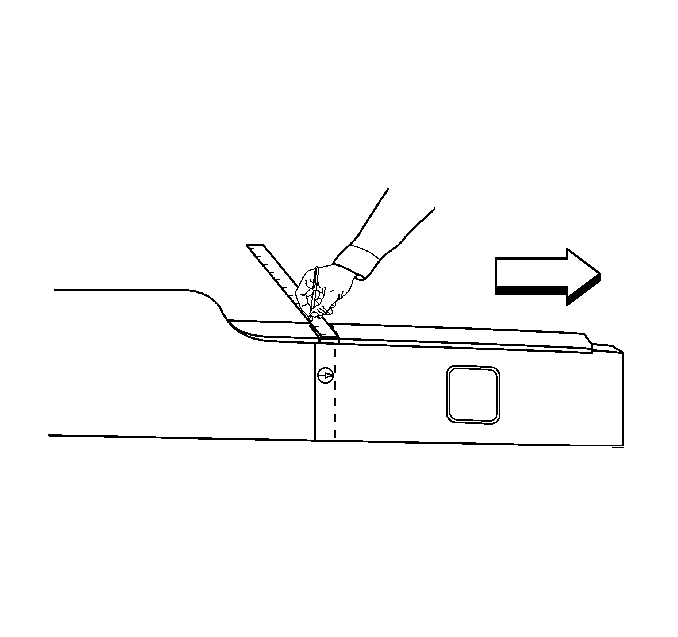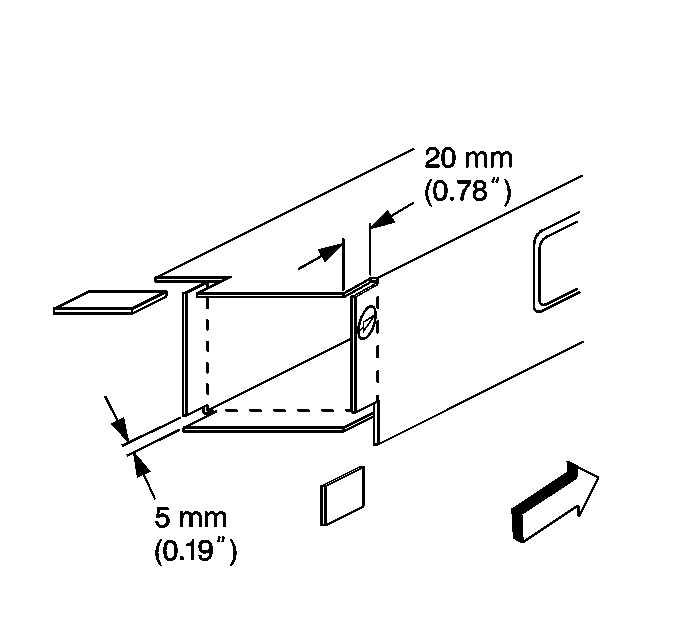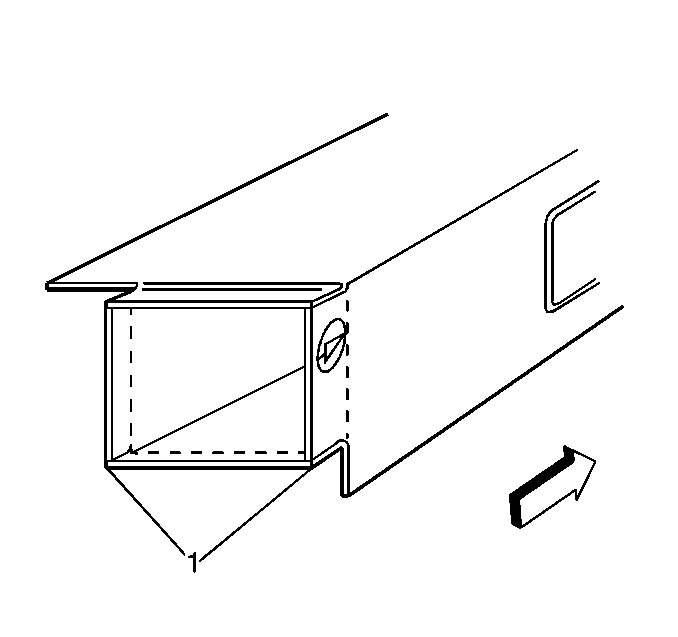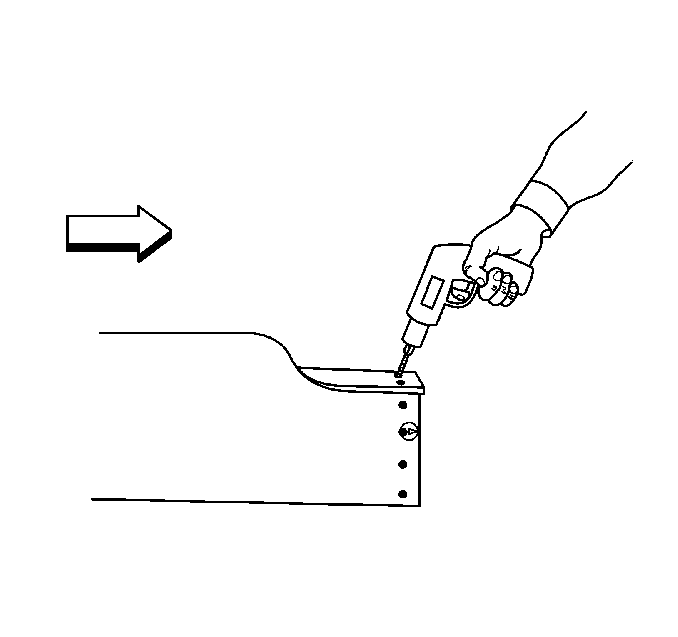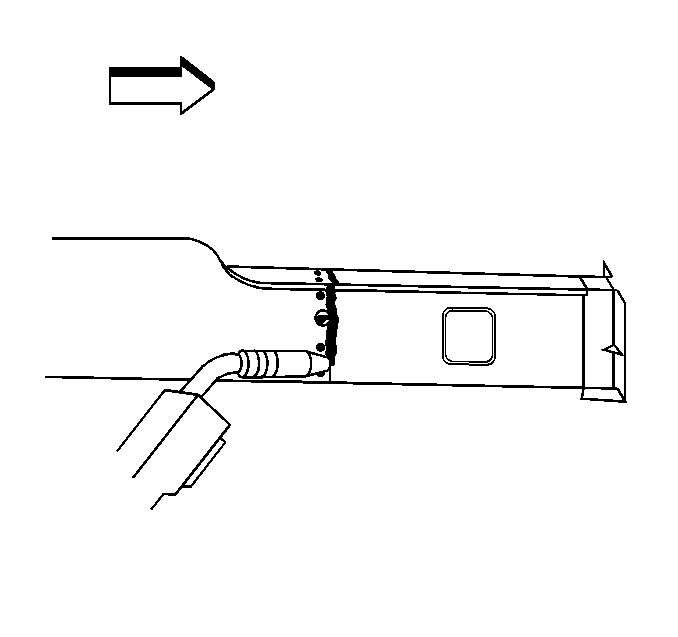Removal Procedure
- Disable the SIR system. Refer to SIR Disabling and Enabling .
- Disconnect the negative battery cable. Refer to Battery Negative Cable Disconnection and Connection .
- Remove all related panels and components.
- Repair as much of the damage as possible to factory specifications. Refer to Dimensions - Body .
- Note the location and remove the sealers and anti-corrosion materials from the repair area, as necessary. Refer to Anti-Corrosion Treatment and Repair .
- Remove the radiator support. Refer to Radiator Support Replacement .
- Remove the front wheelhouse. Refer to Front Wheelhouse Replacement .
- Support the powertrain assembly.
- Position the cradle away from the rail.
- Locate the die mark on the inboard and the outboard sides of the front rail.
- Align a straight edge to the forward edge of the die marks and scribe a line around the rail.
- Cut and remove the damaged section of the rail.
Caution: Refer to Approved Equipment for Collision Repair Caution in the Preface section.
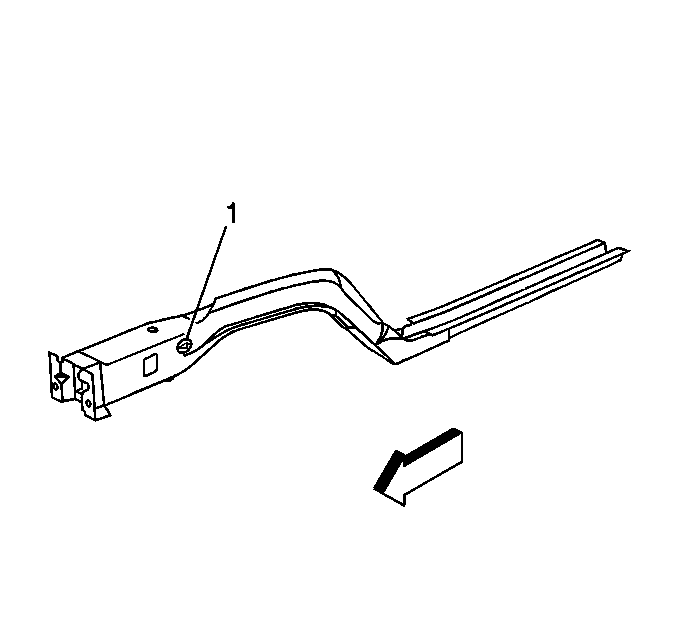
Important: Sectioning procedures have been developed to simplify repair of the lower rails, providing the majority of the damage can be returned to factory specifications. This allows the damaged front section to be replaced without performing a full rail replacement. The rails are manufactured with die marks (1) inboard and outboard to indicate the location for the sectioning joint.
Important: If the damage exceeds the recommended area for sectioning and the rail cannot be straightened, the complete rail must be replaced.
Caution: Refer to Foam Sound Deadeners Caution in the Preface section.
Important: It is not necessary to completely remove the powertrain or engine cradle for rail sectioning.
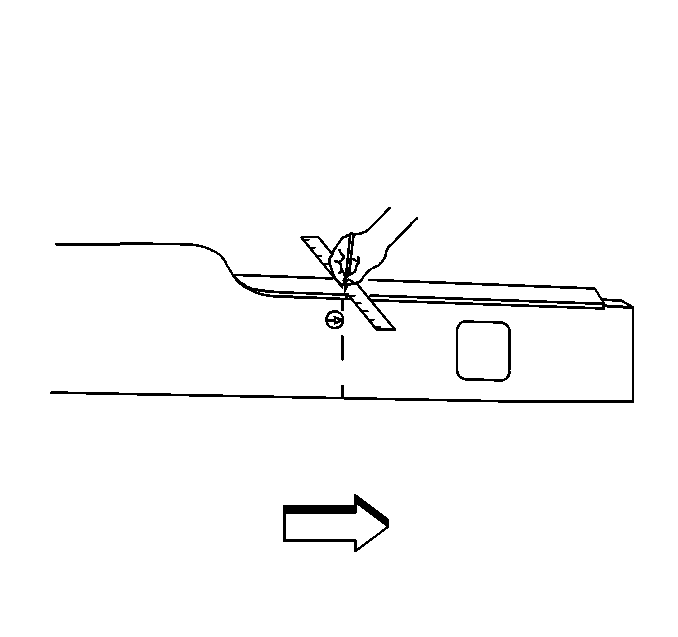
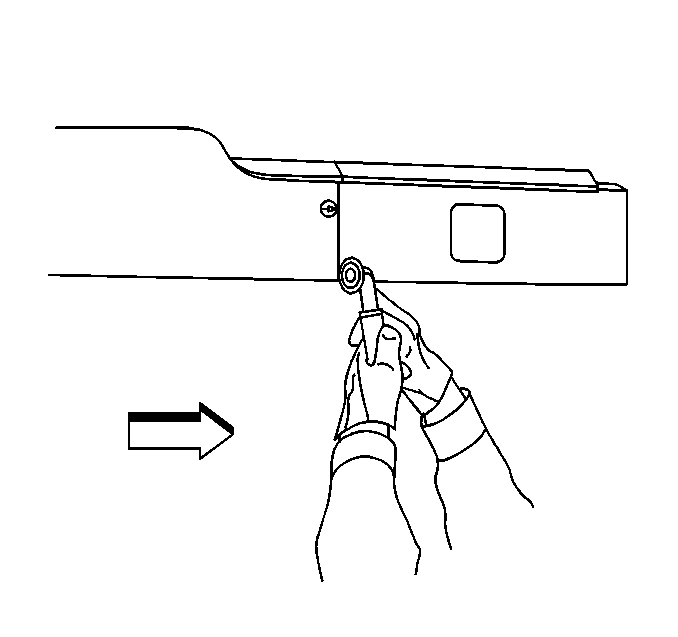
Installation Procedure
- Locate the die mark on the inboard and the outboard sides of the front service rail.
- Align a straight edge to the rearward edge of the die marks and scribe a line around the rail.
- Cut the service part along the marked lines. Leave 20 mm (3/4 in) added lengths to the service part for sectioning overlap.
- Cut and remove approximately 20 mm (3/4 in) of the outboard and downward turned flanges of the service part.
- Cut 5 mm (3/16 in) along the corners of the service part to create tabs on the 4 sides of the rail.
- Step the top, bottom and side tabs inward to allow the service part to fit inside the original rail.
- Welds the tabs together along the corners of the service part (1).
- Drill 8 mm (5/16 in) plug weld holes in the top, bottom and sides of the original approximately 10 mm (3/8 in) from the sectioning cut.
- Clean and prepare the mating surfaces as necessary.
- Position the stepped tabs of the modified service part inside the original rail.
- Plug weld accordingly.
- Inspect the measurements frequently to ensure proper fit and alignment.
- Make 25 mm (1 in) welds along the seam with 25 mm (1 in) gaps between them.
- Go back and complete the stitch weld. This will create a solid joint with minimal heat distortion.
- Install the radiator support. Refer to Radiator Support Replacement .
- Install the front wheelhouse. Refer to Front Wheelhouse Replacement .
- Clean and prepare all welded surfaces.
- Apply the sealers and anti-corrosion materials to the repair area, as necessary. Refer to Anti-Corrosion Treatment and Repair .
- Paint the repair area. Refer to Basecoat/Clearcoat Paint Systems .
- Install all related panels and components.
- Connect the negative battery cable. Refer to Battery Negative Cable Disconnection and Connection .
- Enable the SIR system. Refer to SIR Disabling and Enabling .
